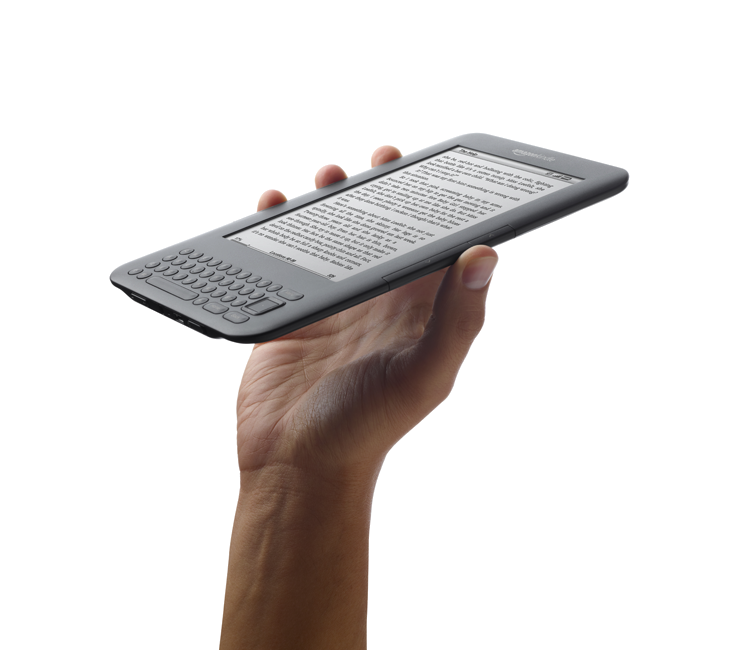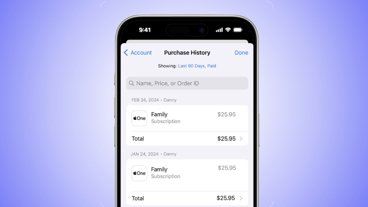The options remain on the table, sources told The New York Times, as Amazon is interested in making devices that would make it easy for customers to purchase content from the online retailer. It's an approach that has resulted in great success for Apple, which sells content from the iTunes Music Store and App Store for its own portable devices.
But there's one key difference: While Amazon is at its core a content provider, Apple has repeatedly stated that it does not make a great deal of money from selling content. The Cupertino, Calif., company has long maintained that the App Store and iTunes Music Store are not meant to be major profit generators, but instead aim to attract customers to the iPhone and iPod ecosystems.
Known as "Lab 126," Amazon's hardware division is responsible for the Kindle e-ink-based reader. But recently, Lab 126 has also been looking into other devices it could potentially create and sell.
One person said Amazon Chief Executive Jeff Bezos originally created Lab 126 with the intention of creating other devices, including "music players and other electronics." Even a smartphone is on the table, author Nick Bilton wrote, though it was said that the project seems "out of Amazon's reach" at the moment. The online retailer reportedly has not ruled out the prospect of competing with Apple's iPhone or Google Android handsets.
"Internally, Amazon executives have been frustrated with other companies aggressively entering the digital content business, and one person with direct knowledge of the company's plans said executives there were prepared to do whatever it takes to ensure Amazon remained a major player in the sale of digital content,"
Amazon is currently looking to expand Lab 126, and is looking to hire a number of new employees. The team recently released a redesigned Kindle with an improved 6-inch e-ink display and a starting price of $139.
Earlier this year, Apple entered the e-book market and began to compete with Amazon in the digital reader space when it released the iPad and its accompanying iBookstore. The iBooks application was later released for devices running iOS 4 as well, including newer generations of the iPhone and iPod touch.
Amazon has also hedged its bets and also offers e-book reading software for other platforms, including Apple's iPad. Using Amazon's "Whispersync" technology, users can begin a book on one device, like a Kindle, and then pick up right where they left off on another device, like the iPad.
Amazon introduced its own MP3 store in 2007, bringing DRM-free music at a time when it was not offered by Apple's iTunes. Earlier this year, it was alleged that Apple attempted to pressure music labels into abandoning the "MP3 Daily Deal" promotion from Amazon, which features timed exclusives for popular tracks.
 Slash Lane
Slash Lane







-m.jpg)






 Charles Martin
Charles Martin
 Christine McKee
Christine McKee
 Wesley Hilliard
Wesley Hilliard
 Malcolm Owen
Malcolm Owen
 Andrew Orr
Andrew Orr
 William Gallagher
William Gallagher
 Sponsored Content
Sponsored Content








49 Comments
Excellent! When there is more competition, the consumer wins. It'll be interesting to see if Amazon actually produces other desirable gadgets.
Good luck with that. Just because Apple makes 'success' look easy, everyone thinks they can do the same!
Amazon doesn't have the money, resource and talent to go in the hardware business.
Not only are they going to lose, they're going to go out of business.
Amazon doesn't have the money, resource and talent to go in the hardware business.
Not only are they going to lose, they're going to go out of business.
Amazon is going out of business? Your reality must be an interesting place to live.
Excellent! When there is more competition, the consumer wins.
True, however the world does not need another smartphone operating system.
Today there are already six major ones: iOS, BlackBerry, Android, Windows, webOS, and Symbian. Realistically, the smartphone ecosystem can support three or four in regard to manufacturing, marketing, technical support, third-party application development and end user experience. My guess is in the next five years, one of these operating systems will evaporate and one will be virtually stagnant.